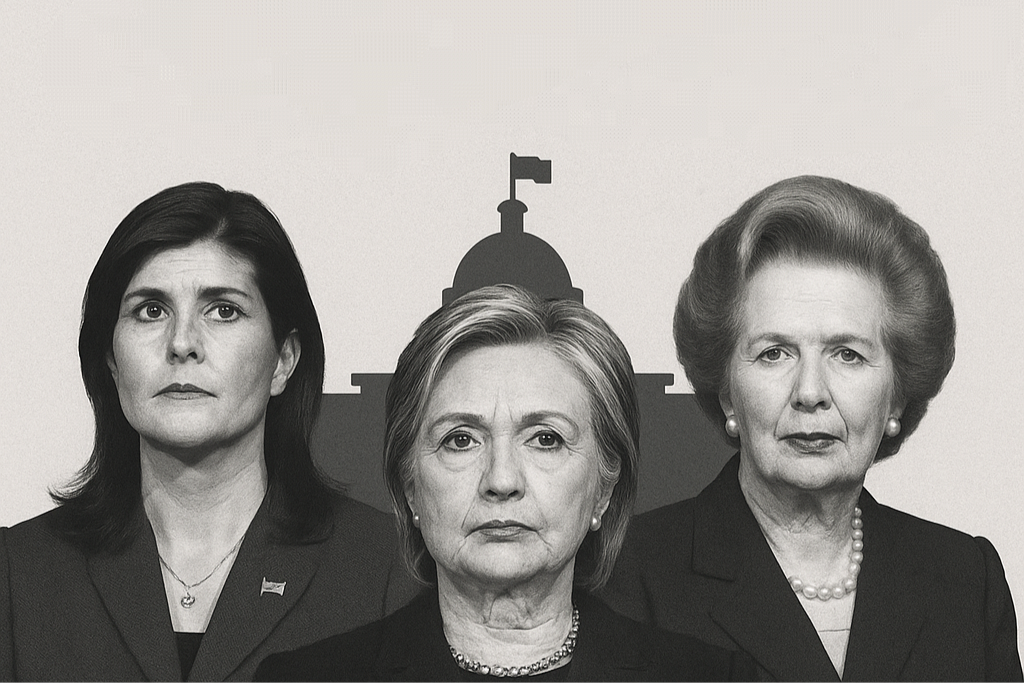For years, a hopeful narrative has circulated in political development and liberal feminist discourse: that the inclusion of women in politics would foster a calmer, more humane, and compromise-driven environment. However, the realities of the political world, especially at the highest echelons of global power, suggest that gender alone doesn’t dictate leadership style.
✍| By Ms. Safieh Hashemi
Hardline Stances from Female Leaders
Consider Nikki Haley, a prominent example. Far from softening the political landscape, she’s known as one of the Republican Party’s most unyielding and hawkish figures. Her sharp and decisive stances on Iran, China, and the United Nations have repeatedly fueled tensions.
Similarly, Hillary Clinton, a Democratic figure, boasts a record brimming with support for military interventions in nations like Libya, Afghanistan, and Iraq. During her tenure as U.S. Secretary of State, Clinton played a pivotal role in initiatives that led to government collapses and instability in West Asia.
Margaret Thatcher, the former British Prime Minister, provides yet another example. In 1982, she made the decision to dispatch British military forces to the Falkland Islands. This military action, which resulted in hundreds of deaths, was viewed by some analysts as an attempt to bolster Thatcher’s domestic political standing. Critics argue that this war, instead of leading to a diplomatic resolution, exacerbated tensions and exemplified a prioritization of military might over compromise and dialogue.

The Structural Nature of Power
This reality indicates that the presence of women in positions of power doesn’t necessarily translate to a reduction in violence or a shift in the nature of power itself. On the contrary, many women, to prove their competence in the intensely male-dominated political arena, sometimes adopt even harsher and more radical approaches.
Politics is, by its very nature, a structural and competitive field. If its governing values are based on dominance, supremacy, and militarism, then female actors will inevitably operate within that same logic. What can truly transform politics isn’t gender diversity, but rather a change in the prevailing discourse, power structures, and fundamental values.
Beyond Gender: Faith, Ethics, and Divine Piety
Put simply, being a woman doesn’t inherently make politics gentler. Instead, the existing political structure can mold women into actors with a propensity for violence.
Ultimately, what can humanize and soften the political sphere is the integration of elements like faith, ethics, and divine piety into the mechanisms of power. These elements, when embedded within the political structure, can guide any actor, regardless of gender, toward balance, fairness, and justice.


